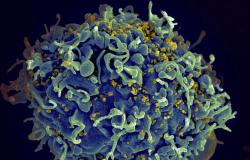Tests with the substance indicate the path to the development of medicines or vaccines against the disease
In article published in the scientific journal PLOS ONE, researchers from Unesp (Universidade Estadual Paulista) described a potential strategy to combat the Zika virus. Study shows test results in vitro who highlighted the antiviral effect of a nanoemulsion made from copaiba oil, a plant used by indigenous people from the Amazon region to treat skin diseases.
About 8 years ago, Zika was revealed to be capable of causing a congenital syndrome in babies that includes visual, auditory and neuropsychomotor changes. In adults, it can also cause neurological disorders, such as Guillain-Barré syndrome. To date, there are no vaccines or specific options to treat the infection.
Brazil was one of the countries most affected by the problem, with more than 250 thousand suspected cases in 2016 alone. Despite the worst moment of the mosquito-transmitted disease aedes aegypti – which also transmits the dengue and chikungunya viruses – has passed, the Zika virus is still circulating throughout the country.
Although no deaths from Zika were recorded in 2024, probable cases increased by around 16% in the first 3 months of the year compared to the same period in 2023. There are just over 1,300, practically all in Espírito Santo, according to data from the Ministry of health.
“In addition to indicating paths for developing therapies for a neglected disease, it is important to highlight that it is a natural oil – and used in small quantities, which could facilitate the development of a future drug”, says Marilia de Freitas Calmon, researcher at Ibilce (Institute of Biosciences, Letters and Exact Sciences) at Unesp, São José do Rio Preto campus.
The study, which included financing from Fapesp, began with tests that confirmed the stability of the nanoemulsions for 60 days, when stored at 4° C, and their ability to be internalized by cells infected by the virus.
Subsequently, simultaneous treatments were carried out with the nanoemulsion at a maximum non-toxic concentration of 180 micrograms per milliliter (μg/mL). The results were compared with those of another formulation without copaiba oil. A viral inhibition of 80% was observed for the version with the oil and 70% for the version without, that is, both the structure of the nanoemulsion and its association with the oil showed activity.
The researchers also performed a dose-dependence assay to check whether an increased concentration would improve the inhibition capacity on viral RNA levels, which was confirmed.
NEXT STEPS
Despite the promising results, the researchers are cautious: as the oil-free nanoemulsion also showed antiviral activity, there is the possibility that part of the effect is related to the composition of egg lecithin (mainly phosphatidylcholine) present in the nanoemulsion structure. Other studies have even demonstrated the inhibitory capacity of lipid nanoemulsions derived from natural foods.
Furthermore, details about how Zika virus replication is inhibited are lacking. The research coordinator explains that additional studies are needed to identify, for example, at which stages this occurs. “With this information, it would be possible to determine how a future medicine could be used: as pre-treatment or after infection.”, believes Calmon.
For now, prevention remains the best way to combat the disease, according to the Ministry of Health, which recommends avoiding accumulation of water in gutters, open water tanks, slabs, tires and vases, places where the aedes aegypti lays its eggs – which also helps in the fight against dengue.
If you experience symptoms such as sudden fever, headache, behind the eyes, in the joints and in the body; nausea, vomiting and abdominal pain; In addition to itching and red spots on the skin, the advice is to seek health care as soon as possible.
With information from Agência Fapesp.






